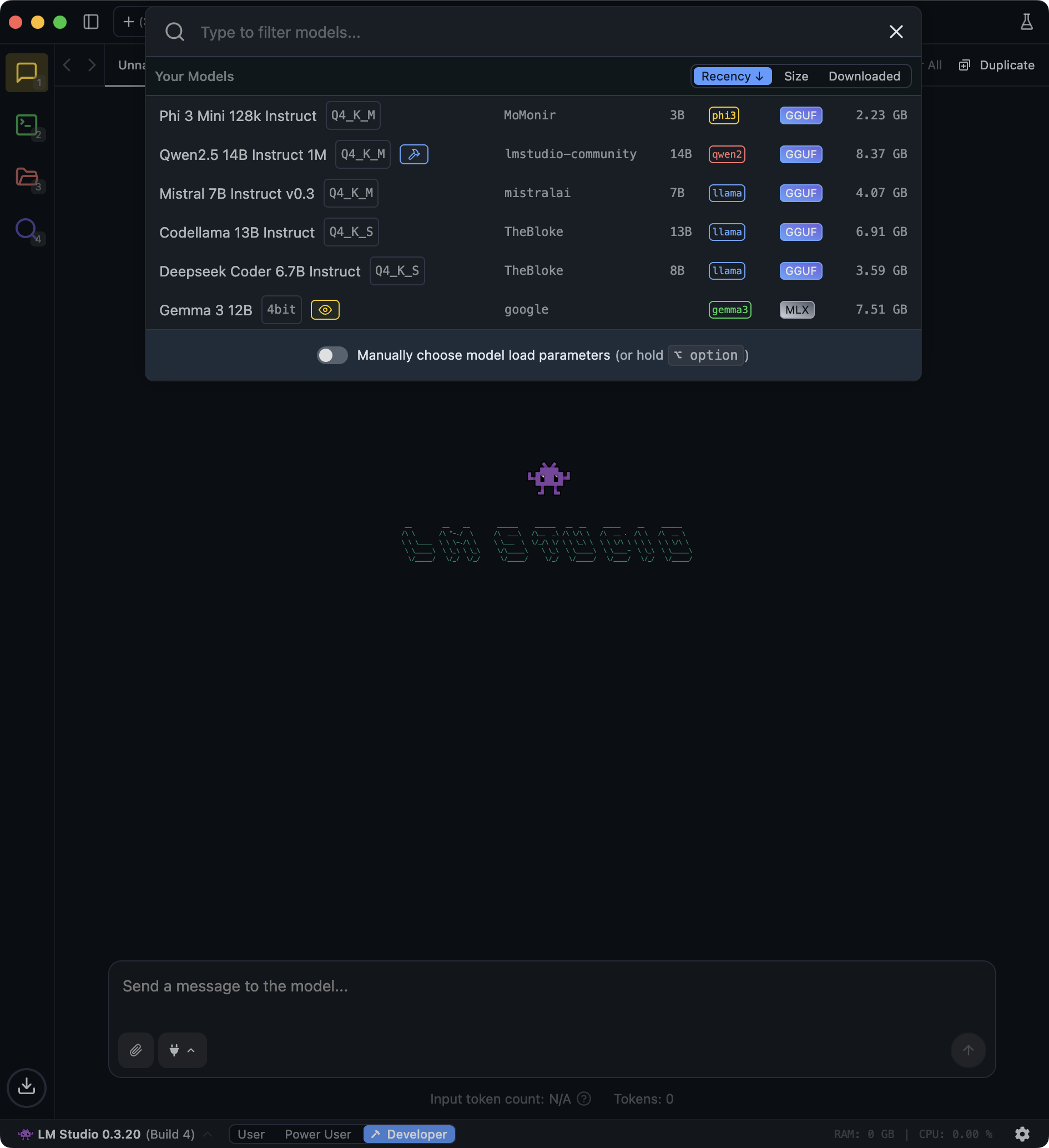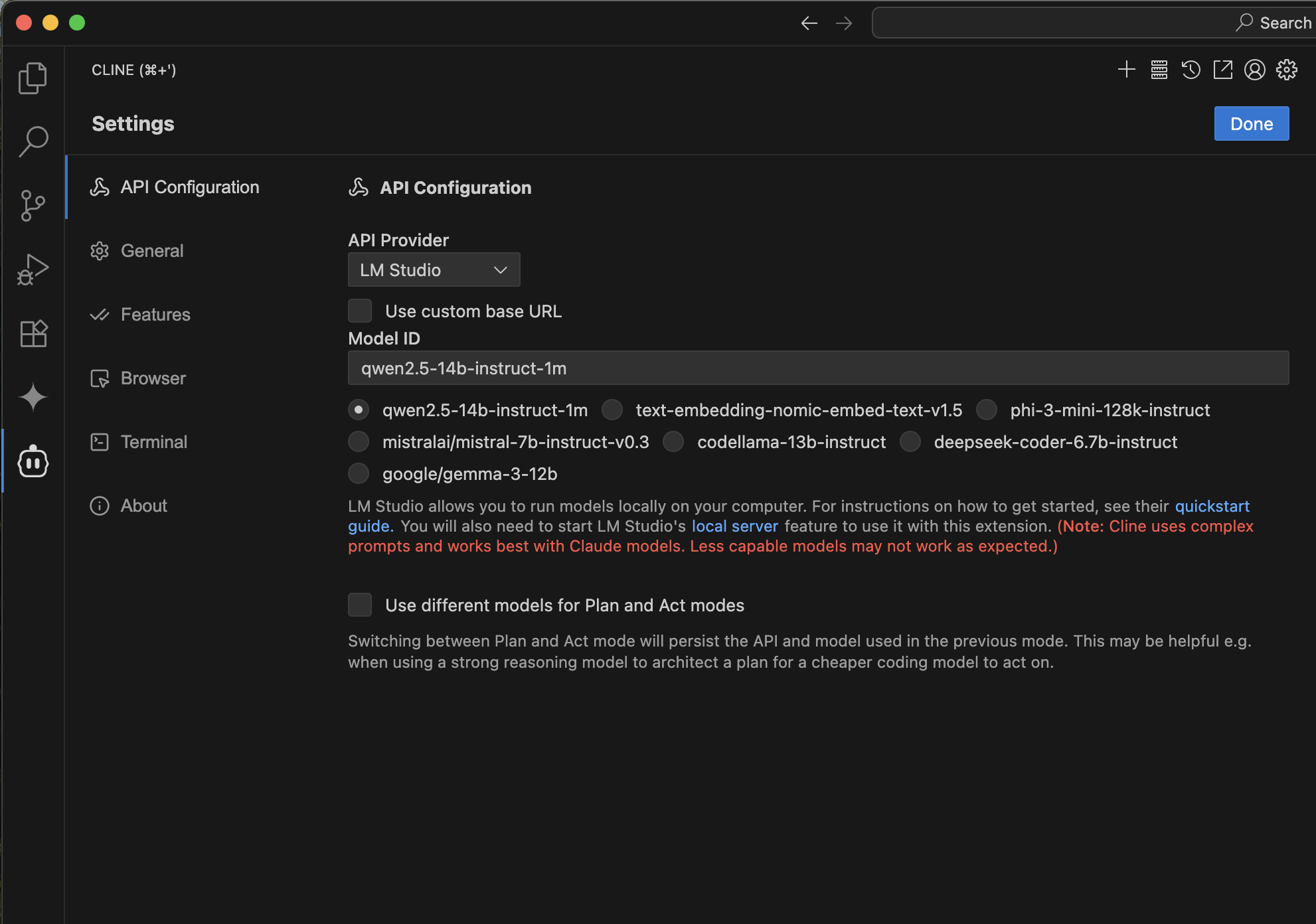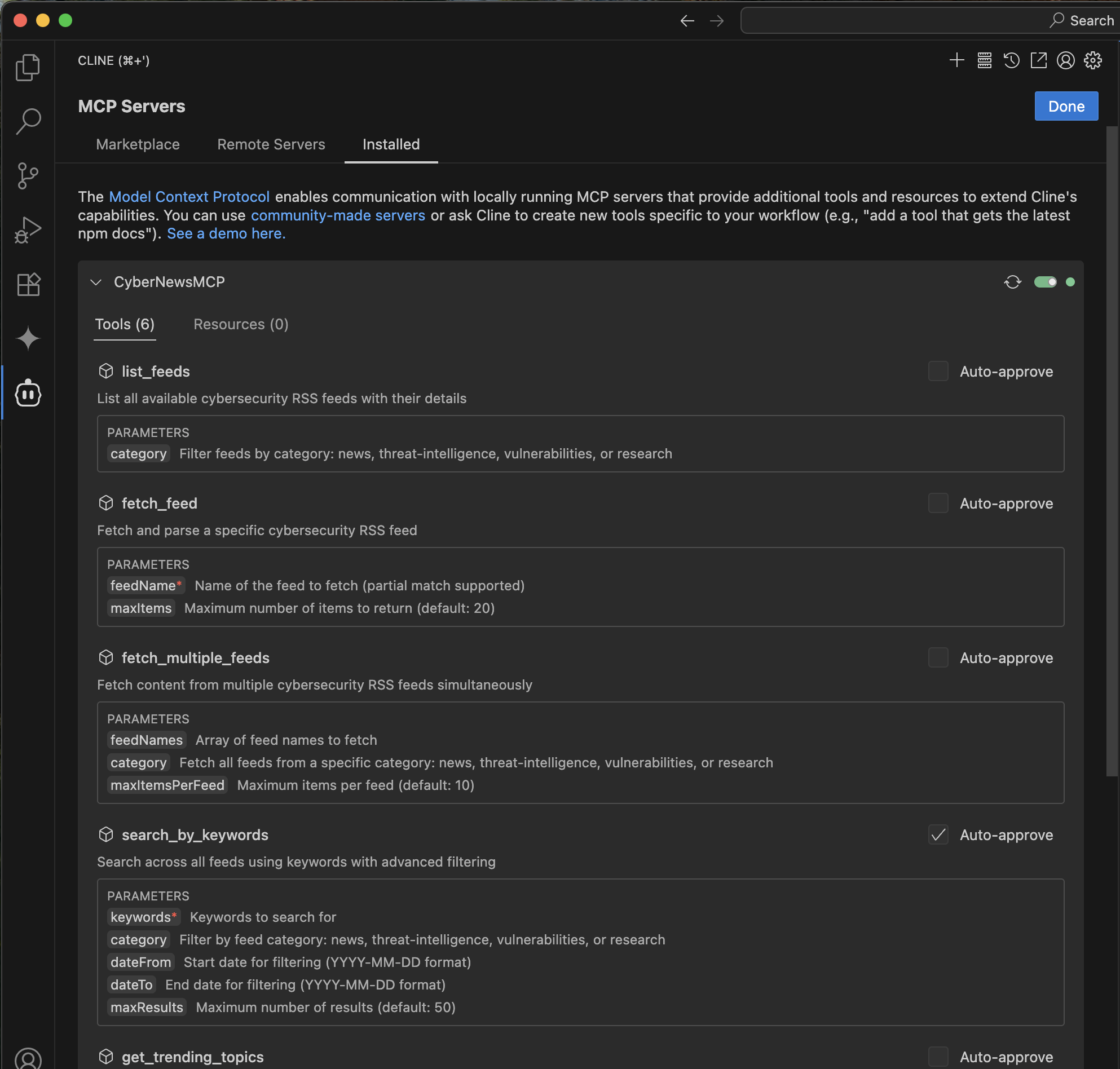Configuring CyberNewsMCP with a local LLM
When I read Simon Ganiere’s LinkedIn post announcing his CyberNewsMCP project, I knew I wanted to check it out. I’ve been keen to try things out with locally running models instead of burning tokens in Claude. :-)
I managed to get this to work and I’m passing along the steps that I took as well as a quick video walking through it.
1. Clone and build CyberNewsMCP
We’ll start by pulling the source for CyberNewsMCP and building it locally.
git clone https://github.com/sganiere/CyberNewsMCP.git
cd CyberNewsMCP
npm install
npm run build
Now you can make sure everything is working by running the MCP server with:
$ node dist/index.js
Cybersecurity RSS MCP Server running on stdio
2. Install and configure LM Studio
First you’ll obviously download and install LM Studio.
Download Qwen (or other) model
Open LM Studio and at the top in “Select a model to load”, search for Qwen2.5 14B Instruct (1M) model. You can choose other models, but you need to make sure that the system prompt is compatible with tools and that it accepts a separate system and user prompt.

Start local API server
Next we’ll start the LM Studio local API server. Make sure you have selected either power user or developer from the small tab at the bottom of the window.
Then you click on the green folder on the left, the Developer tab, and the “Select a model to load”. This should automatically load the model.
Finally, flip the “Status: stopped” toggle which should changed to “Staus: Running”. You can leave the rest of the API server settings with the default for now.
You can verify the model is available with curl:
curl -s http://localhost:1234/v1/models | jq .
You should see something like:
{
"data": [
{
"id": "qwen2.5-14b-instruct-1m",
"object": "model",
"owned_by": "organization_owner"
}
],
"object": "list"
}
3. Install and configure Cline in VS Code
Cline is a VS Code extension that can use MCP servers with a configured LLM.
- In VS Code, search for Cline in the Extensions Marketplace and install it.
- Click on Cline in the left vertical nav
- Under API Configuration, add your local LM Studio endpoint:
- Provider:
LM Studio - Model:
qwen2.5-14b-instruct-1m
- Provider:
Under General, I disabled “Allow error and usage reporting” and in Features I disabled the option to “Enable Checkpoint” as it would throw an error message since I wasn’t running it inside to git repo.

4. Connect CyberNewsMCP in Cline
With LM Studio running and Cline configured:
- In Cline, open the MCP Server settings (at the top, looks like 3 servers in a rack)
- Click on “Installed” tab, then Configure MCP Servers
- In the editor window, add the CyberNewsMCP as a local MCP server (change paths for your configuration):
{
"mcpServers": {
"CyberNewsMCP": {
"disabled": false,
"timeout": 60,
"type": "stdio",
"command": "/usr/bin/env",
"args": [
"bash",
"-lc",
"node /Users/hiro/git/CyberNewsMCP/dist/index.js"
],
"env": {},
"autoApprove": ["search_by_keywords"]
}
}
}
You should now see the server connected and a list of available tools:

5. Run a CyberNews query
You can now use CyberNewsMCP with your local Qwen2.5 model:
find articles about recent data breaches with links to the sources"
Why this matters
Running MCP with a local LLM has a few advantages:
- Privacy, No data leaves your machine.
- Offline operation, Works without internet once dependencies are installed.
- Cost control, No API billing.
In my testing, Qwen2.5 in LM Studio handled CyberNews queries well, though performance will vary based on your computer’s hardware.